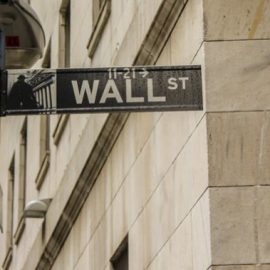

This article is an excerpt from the Shortform book guide to "The Wealth of Nations" by Adam Smith. Shortform has the world's best summaries and analyses of books you should be reading.
Like this article? Sign up for a free trial here.
According to Adam Smith, how are humans different from dogs? What’s the real price of something? How did Smith regard taxation?
Adam Smith, an 18th-century Scottish philosopher, is widely considered one of the founding fathers of capitalism. Published in 1776, his book The Wealth of Nations makes the case for free markets and individual self-interest as the best ways to grow a nation’s economy.
Continue reading for several quotes from The Wealth of Nations that give you a good idea of the book’s ideas.
Quotes From The Wealth of Nations
Smith’s seminal work laid much of the groundwork for the field of economics. We’ve selected five quotes from The Wealth of Nations and provided them along with some context and explanation.
“Man is an animal that makes bargains. No other animal does this; no dog exchanges bones with another.”
In a capitalist society, everyone’s a merchant. Smith contends that you cannot meet your needs without purchasing goods produced by others. Therefore, everyone must exchange value for value, wealth for wealth. Workers sell their labor in exchange for wages just as merchants sell goods in exchange for profits. But what are we really exchanging, and how do we do so? In this section, we will cover Smith’s theories on what markets exchange and how they’re able to facilitate this exchange.
“The real price of everything, what everything really costs to the man who wants to acquire it, is the toil and trouble of acquiring it.”
Markets exchange the value of labor. Smith explains that the value of every good is derived from the work people put into producing it. For example, when you buy a block of cheese at a grocery store, you are paying for the work of the farmers who raised and milked the cows, the farmers who raised feed for the cows, the dairy processors who turned the milk into cheese, the truck drivers who shipped the cheese to your grocery store, the store clerks who keep the shop open, the workers in the energy sector providing electricity for every step of the process, and so on.
Therefore, when you trade your labor for wages and then spend those wages on goods, you’re really exchanging your labor for the labor of others. You gain wealth by contributing labor to society, and your wealth gives you the power to command labor from others.
“Civil government, so far as it is instituted for the security of property, is in reality instituted for the defence of the rich against the poor, or of those who have some property against those who have none at all.”

———End of Preview———
Like what you just read? Read the rest of the world's best book summary and analysis of Adam Smith's "The Wealth of Nations" at Shortform.
Here's what you'll find in our full The Wealth of Nations summary:
- The 1776 classic that set the groundwork for the field of economics
- Adam Smith's ideas about markets, international trade, and government
- How governments can accidentally encourage smuggling






